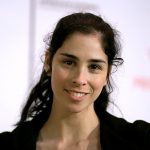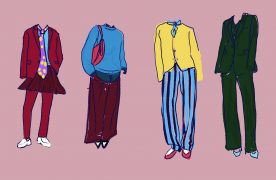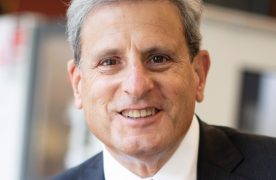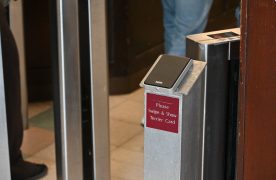Female composers made up 1.8 percent of the works performed during the 2014-2015 orchestral season in the 22 largest American orchestras, according to a survey by the Baltimore Symphony Orchestra.
The New England Conservatory hosted a performance and panel on Thursday, titled “Women in Leadership: Performance and Conversation,” organized by NEC’s chapter of Students Advocating for Gender Equality and its entrepreneurial musicianship department.
The event opened with performances from female students in the conservatory, including original songs, covers and instrumental duets. Afterwards, the panel began, within which Joan Tower was the only female composer and musician. She recounted the sexism she faced at the beginning of her career.
Tower described her first orchestra piece, which featured 64 percussion instruments. After the performance, she said, “People came up to me and said, ‘Wow! You write like a man!’ So, I started wearing earrings. But I still write strong and loud.”
Saj-nicole Joni, CEO of Cambridge International Group, talked about her struggles with discrimination and how the world has improved throughout her lifetime, likening it to the film, “Hidden Figures,” which tells the story of female mathematicians of color, working during the early years of NASA’s space program.
“I was the first woman on the MIT mathematics faculty,” she said. “And in 1977, there were no female bathrooms in the mathematics building.”
Joni encouraged female attendees to be ambitious and know their own worth. Ultimately, Joni said, her success at the Massachusetts Institute of Technology depended on outperforming her male peers.
“I just figured out to be better than everyone else,” Joni said.
Megan Costello, executive director of Women’s Advancement for the City of Boston, advocated for women standing up for themselves and their voices in the workplace.
“Authenticity to me means having a dialogue,” Costello said. “I’m going to be more successful in my work environment if I’m my true, authentic self.”
Shamika Rucker, 38, of East Boston, said she appreciated the panelists’ authenticity.
“I thought the panelists were just thoughtful and very genuine,” Rucker said. “It’s not very often that you get to hear the thoughts of women who are at the top of their game all in one place.”
While the panel focused primarily on leadership, panelists also discussed art’s role in their lives.
In an interview with The Daily Free Press, Higgins discussed the meaning of art to her. She quoted Paul Robeson, who once said, “Artists are the gatekeepers of truth.” “It’s important to recognize the truths that women bring in terms of our own perspectives,” Higgins said.
While the panelists unanimously agreed that women are garnering more respect in the music industry, they wanted to be clear that it is not the end of the fight. Melissa Weikart, moderator and founder of SAGE, said there are a multitude of areas in which there is room for improvement.
“Unfortunately, most of our instructors are men, and most of the sort of, canon, that we learn from is very male,” Weikart said, in an interview with The Daily Free Press. “Many non-male artists have been written out of the history, and obviously most of the artists that are going to be remembered are men, especially associated with artistic or musical genius.”
Tower agreed with this sentiment wholeheartedly, describing classical music as “a 95 percent white, male and European field.” She expressed admiration for these figures, but said she wanted to stand on her own as an outspoken feminist in the composition world.
Ultimately, Joni said, she viewed her success in a male-dominated industry not only as a personal victory but also the establishment of groundwork for others to succeed in the future.
“I wanted it for me,” Joni said. “And I wanted it for the legacy of what that would allow for other women, and other men. It has to be for something much bigger than you.”














